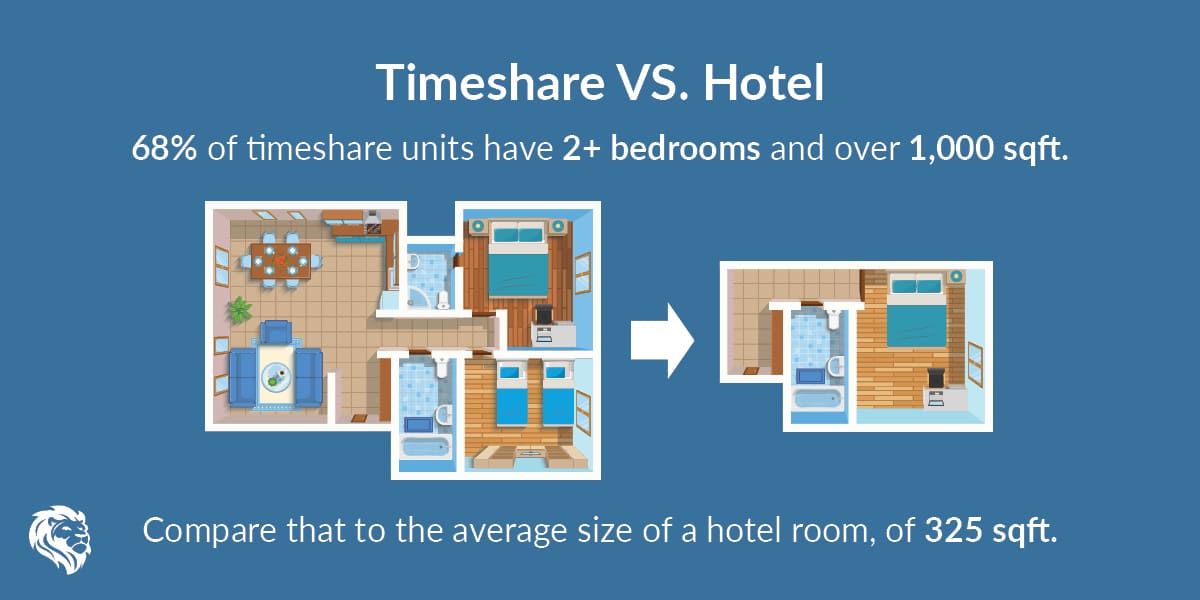Each purchaser normally buys a certain duration of time in a specific system. Timeshares typically divide the residential or commercial property into one- to two-week durations. If a purchaser desires a longer time duration, purchasing numerous consecutive timeshares may be an option (if available). Conventional timeshare residential or commercial properties generally sell a set week (or weeks) in a home.
Some timeshares offer "flexible" or "drifting" weeks. This arrangement is less stiff, and allows a purchaser to pick a week or weeks without a set date, but within a specific period (or season). The owner is then entitled to reserve his or her week each year at any time during that time period (topic to availability).
Considering that the high season might stretch from December through March, this provides the owner a little holiday flexibility. What sort of residential or commercial property interest you'll timeshare maintenance fees don't pay own if you buy a timeshare depends upon the kind of timeshare purchased. Timeshares are typically structured either as shared deeded ownership or shared leased ownership.
The owner receives a deed for his/her portion of the system, specifying when the owner can use the property. This suggests that with deeded ownership, many deeds are provided for each property. For example, a condo unit sold in one-week timeshare increments will have 52 overall deeds when totally offered, one issued to each partial owner.
Each lease arrangement entitles the owner to utilize a particular residential or commercial property each year for a set week, or a "floating" week during a set of dates. If you purchase a rented ownership timeshare, http://augustfvlk905.cavandoragh.org/getting-the-how-to-negotiate-timeshare-cancel-to-work your interest in the residential or commercial property usually ends after a specific term of years, or at the most recent, upon your death.
This suggests as an owner, you may be limited from offering or otherwise moving your timeshare to another. Due to these aspects, a leased ownership interest might be purchased for a lower purchase price than a comparable deeded timeshare. With either a leased or deeded type of timeshare structure, the owner purchases the right to use one particular home.
To offer higher flexibility, numerous resort advancements get involved in exchange programs. Exchange programs allow timeshare owners to trade time in their own residential or commercial property for time in another taking part home. how to sell your timeshare. For example, the owner of a week in January at a condo system in a beach resort may trade the residential or commercial property for a week in a condo at a ski resort this year, and for a week in a New York City accommodation the next.
3 Simple Techniques For How To Buy A Timeshare Cheap
Generally, owners are limited to selecting another property classified comparable to their own. Plus, additional fees are common, and popular homes may be tricky to get. Although owning a timeshare methods you will not resort relief llc reviews need to throw your money at rental lodgings each year, timeshares are by no means expense-free. First, you will require a chunk of cash for the purchase rate.
Considering that timeshares rarely keep their value, they will not certify for financing at the majority of banks. If you do discover a bank that concurs to fund the timeshare purchase, the rate of interest makes certain to be high. Alternative funding through the designer is generally offered, but again, just at high rates of interest.

And these charges are due whether or not the owner uses the property. Even even worse, these fees commonly escalate continually; in some cases well beyond an economical level. You might recoup some of the expenditures by renting your timeshare out throughout a year you do not use it (if the rules governing your particular property permit it) - how to sell a timeshare on ebay.
Acquiring a timeshare as a financial investment is seldom a good idea. Considering that there are numerous timeshares in the market, they seldom have good resale capacity. Instead of valuing, the majority of timeshare depreciate in worth when bought. Many can be challenging to resell at all. Rather, you should think about the worth in a timeshare as a financial investment in future getaways.
If you getaway at the very same resort each year for the exact same one- to two-week duration, a timeshare may be a fantastic way to own a property you like, without incurring the high expenses of owning your own house. (For information on the costs of resort own a home see Budgeting to Buy a Resort House? Costs Not to Neglect.) Timeshares can likewise bring the comfort of knowing just what you'll get each year, without the trouble of booking and renting lodgings, and without the fear that your favorite place to remain won't be available.
Some even use on-site storage, enabling you to easily stash equipment such as your surfboard or snowboard, preventing the inconvenience and cost of hauling them back and forth. And simply since you might not use the timeshare every year does not indicate you can't delight in owning it. Lots of owners enjoy occasionally lending out their weeks to pals or loved ones.
If you don't wish to vacation at the same time each year, flexible or floating dates offer a good option. And if you want to branch out and explore, think about using the residential or commercial property's exchange program (ensure a great exchange program is used before you buy). Timeshares are not the very best solution for everybody.
The Greatest Guide To What Happens If You Stop Paying Maintenance Fees On A Timeshare
Also, timeshares are normally unavailable (or, if offered, unaffordable) for more than a couple of weeks at a time, so if you generally holiday for a two months in Arizona during the winter season, and spend another month in Hawaii throughout the spring, a timeshare is probably not the very best choice. Furthermore, if conserving or making cash is your primary issue, the lack of financial investment capacity and continuous expenses included with a timeshare (both talked about in more detail above) are definite drawbacks.
Does the expression "timeshare" ring a bell, but you don't understand what a timeshare is? Or possibly you have an unclear concept of what a timeshare is however want some more thorough details on how a timeshare works. In basic terms, a timeshare is a resort unit that enables owners to have an increment of time in which they can use for trips every year.
This ownership is usually in weekly increments. Most timeshares today are with big corporations like Wyndham, Marriott or perhaps Disney. These hospitality brand names provide a travel club design of subscription for owners, supplying versatility and personalization for holidays. According to the American Resort Advancement Association, "timesharing" is specified as shared ownership of a trip residential or commercial property, which may or may not consist of an interest in real estate.

These increments are usually one week but differ by designer and resort. Basically, you are sharing an unit with others, but "own" a designated week. There are a few influential people that offer timeshare a bad associate, however satisfied owners and stats collected by ARDA's AIF Structure negate opinion. In fact, the AIF State of the Trip Timeshare Industry Reveals Development - how to get rid of a timeshare.
If you're a timeshare owner or aiming to Buy Timeshare, you must become acquainted with your getaway ownership brand, because each one works differently. The most normal (and now obsoleted!) way a timeshare works is owning a specific week at the exact same time every year, in the exact same resort. Generally, families can travel to their timeshare resort during their "fixed week." However, there are much more alternatives to timeshare than ever.